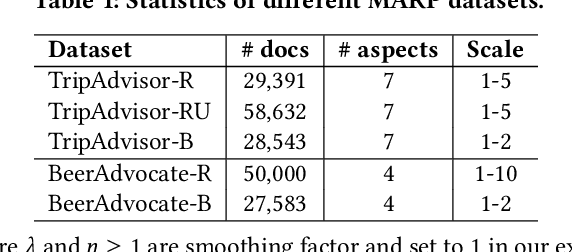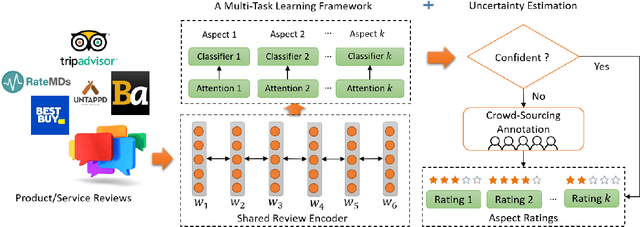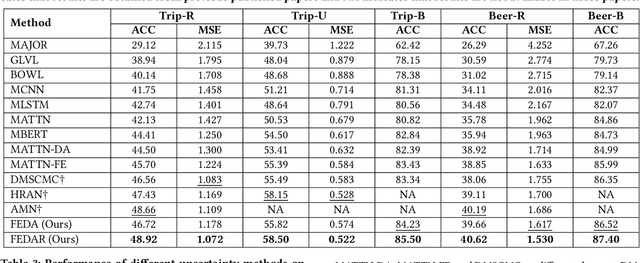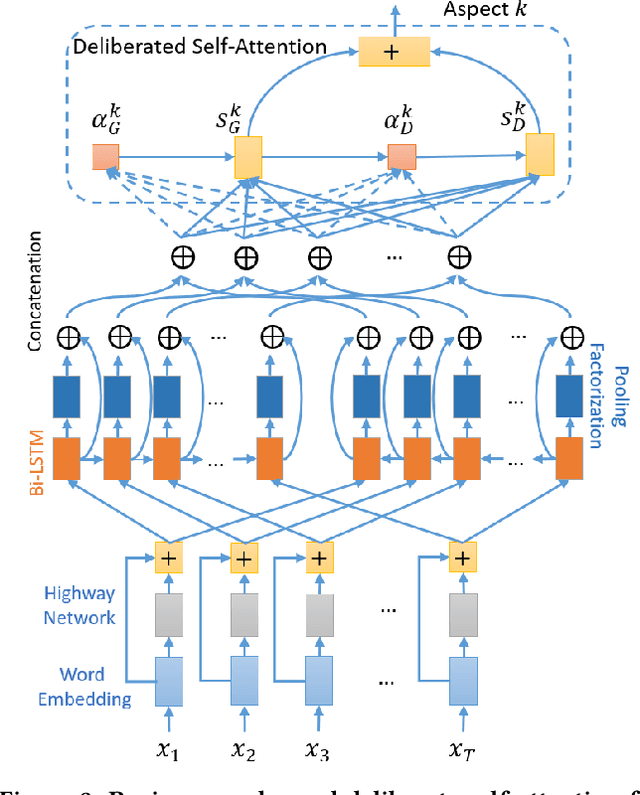Deliberate Self-Attention Network with Uncertainty Estimation for Multi-Aspect Review Rating Prediction
Paper and Code
Sep 18, 2020



In recent years, several online platforms have seen a rapid increase in the number of review systems that request users to provide aspect-level feedback. Multi-Aspect Rating Prediction (MARP), where the goal is to predict the ratings from a review at an individual aspect level, has become a challenging and an imminent problem. To tackle this challenge, we propose a deliberate self-attention deep neural network model, named as FEDAR, for the MARP problem, which can achieve competitive performance while also being able to interpret the predictions made. As opposed to the previous studies, which make use of hand-crafted keywords to determine aspects in sentiment predictions, our model does not suffer from human bias issues since aspect keywords are automatically detected through a self-attention mechanism. FEDAR is equipped with a highway word embedding layer to transfer knowledge from pre-trained word embeddings, an RNN encoder layer with output features enriched by pooling and factorization techniques, and a deliberate self-attention layer. In addition, we also propose an Attention-driven Keywords Ranking (AKR) method, which can automatically extract aspect-level sentiment-related keywords from the review corpus based on the attention weights. Since crowdsourcing annotation can be an alternate way to recover missing ratings of reviews, we propose a LEcture-AuDience (LEAD) strategy to estimate model uncertainty in the context of multi-task learning, so that valuable human resources can focus on the most uncertain predictions. Our extensive set of experiments on different DMSC datasets demonstrate the superiority of the proposed FEDAR and LEAD models. Visualization of aspect-level sentiment keywords demonstrate the interpretability of our model and effectiveness of our AKR method.
 Add to Chrome
Add to Chrome Add to Firefox
Add to Firefox Add to Edge
Add to Edge